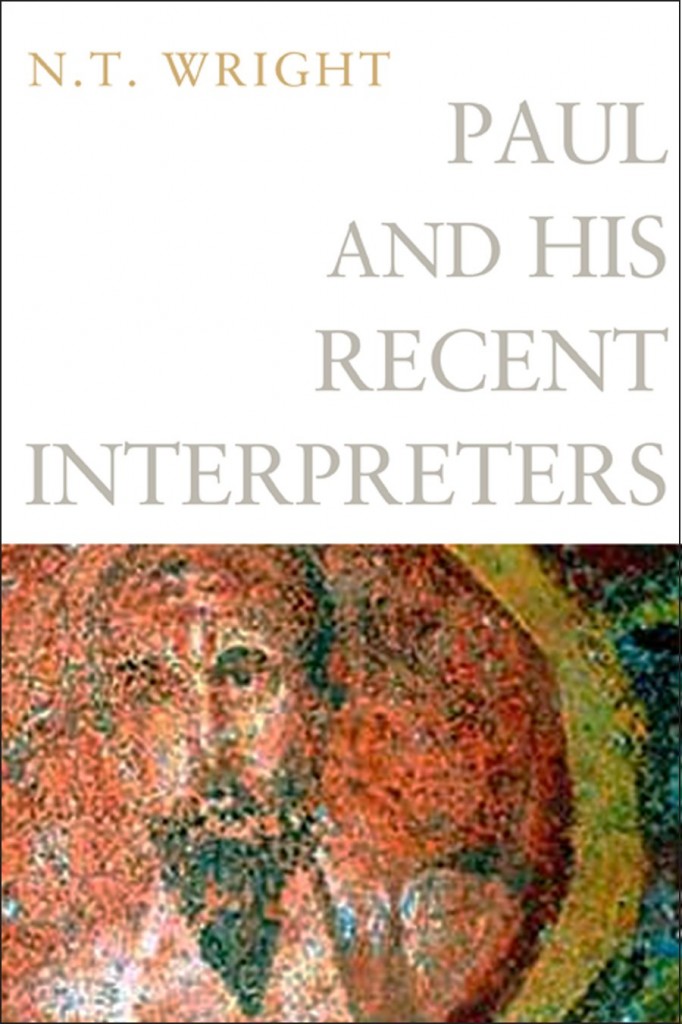Some time ago, a very fine NT scholar named Earle Ellis wrote a book entitled Paul and his Recent Interpreters. Now we have another one from the ever-flowing pen of Tom Wright (due out in America in Oct. 2015, already out in the U.K. and comprising some 384 pages). Of course the thing about a title like that is it’s always appropriate, because there is a never ending stream of Pauline interlocutors. In some years, Paul is more of a center of controversy than even Jesus in the scholarly world. Into this environment, Tom assays to assess some of the recent debates about Paul since E.P. Sander’s landmark work Paul and Palestinian Judaism (1977), focusing on major contributors to the debate.
It is an obvious truth that it is easier to tear down than it is to build up, to deconstruct than to construct. This book is not just an attempt to demolish arguments and scholarly trends with which Tom Wright disagrees, though there is plenty of rebuttal and refutation in this book. There is commendation along with the correction, and something of a history of the interpretation of Paul in the 20th century, sticking to major Anglephone contributors to ‘the Paul Debate’ in this new book.
The three primary trajectories in modern Pauline scholarship Tom intends to analyze are: 1) the new perspective on Paul, ala Sanders et al.; 2) the apocalyptic perspective ala Martyn, Gaventa etc.; and 3) the social scientific analysis of Paul ala Meeks, Horrell etc.
Tom ignores almost entirely the huge rhetorical discussion and analysis of Paul in various forms whether in the form of historical rhetorical criticism ala Betz, Mitchell, Witherington etc. or the more innovative approach of V. Robbins and his disciples. Though Tom admits, and the subtitle indicates, that he is only dealing with some of the recent trends and trend setters, the failure to deal with Paul’s rhetoric and his rhetorical interpreters speaks volumes about whether he sees that whole approach as a major trend or rather a small tributary not leading to any large stream of discussion. I would completely disagree with this view, if that’s what his silence is meant to suggest.
He admits his indebtedness to the much older analyses of Albert Schweitzer and quotes him regularly and approvingly. This volume by Wright began life as a survey of contemporary trends which was to be part of the introduction to Paul and the Faithfulness of God, only it became too large in and of itself. So Tom sees this current book as ‘like a moon circling its parent volume, and hopefully shedding some pleasant light on it’ (to paraphrase p. xviii ). He simply apologizes for not treating recent German work on Paul, but rather focuses purely on the Anglephone discussion, as he calls it. He sees this volume as a small scale map of the current Anglephone discussion, not a detailed or exhaustive one.
From the outset, one deduces that Tom methodologically is taking what could be called a rather traditional approach to his analysis, as he says on p. 8 that all serious students of Paul must attend to theology, history, exegesis, and application. What he does not mean is the old history of religions approach to Paul’s thought, for which he has strong criticism. For example on pp. 22-23 he says…
“These agendas have produced, among other things, the set of history of-
religion categories which we mentioned earlier in relation to F. C. Baur
(‘Jewish Christian’, ‘gentile Christian’, ‘enthusiast’ and ‘early catholic’),
which are still regularly employed and invoked. In particular, there is the
obvious but devastating mistake of imagining that once you have discovered
where an idea has come from you have discovered where it’s going to. Just
as, in lexicography, the etymology of a word does not necessarily provide a
reliable guide to current usage, so it is with beliefs and ideas. In particular,
just because something (an idea, a symbol, a story) is demonstrably ‘Jewish’,
that does not mean it has no critique of Judaism. In fact, one of the main
characteristics of Judaism from at least the time of the eighth-century
prophets onwards was critique from within, something a normal ‘history-of religions’
analysis has always found hard, if not impossible, to allow for. Thus, just as Baur, Bultmann, Bousset and others eagerly produced ‘hellenistic’ contexts for Paul’s ideas because they knew he was opposed to ‘works of the (Jewish) law’,W. D. Davies produced a would-be ‘Jewish’ Paul,
Paul among Jews and Gentiles? These formed the backbone, for instance, of Dunn.
Misleading categories produce misleading analyses….In particular, such a move assumes that the way to find the appropriate‘application’ of Paul’s letters to today’s world is first to discover the ‘right’ sort of ‘religion’ and then to attempt to reproduce it. This assumption cuts both ways. Some have assumed that the main thing about Paul is that he discovered and propagated a new sort of ‘religion’; others, indeed, that he gave up something called ‘religion’ and had something new, perhaps a ‘revelation’, instead (an antithesis favoured by some early twentieth century
theologians, and now retrieved by some ‘apocalyptic’ interpreters).”













